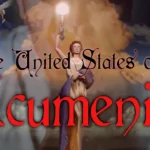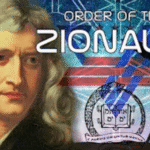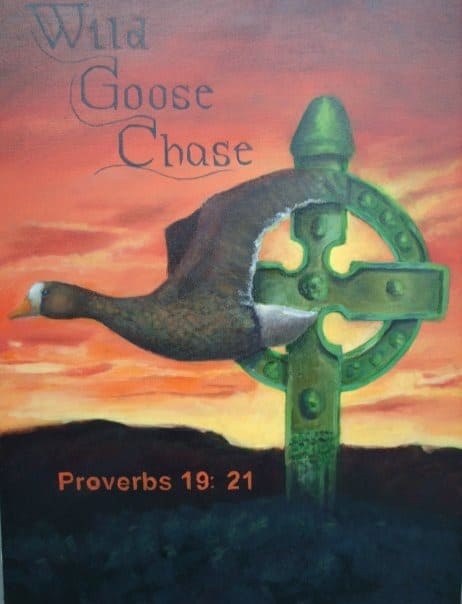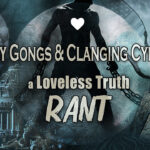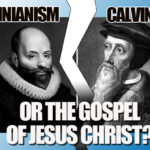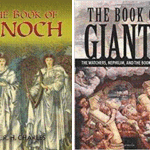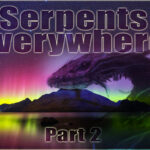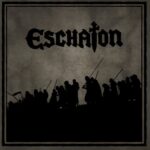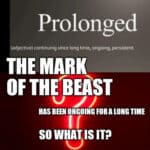OK, so here’s a new one; The Wild Goose version of the Holy Spirit!
A Pentecostal pastor recently posted this on Facebook:
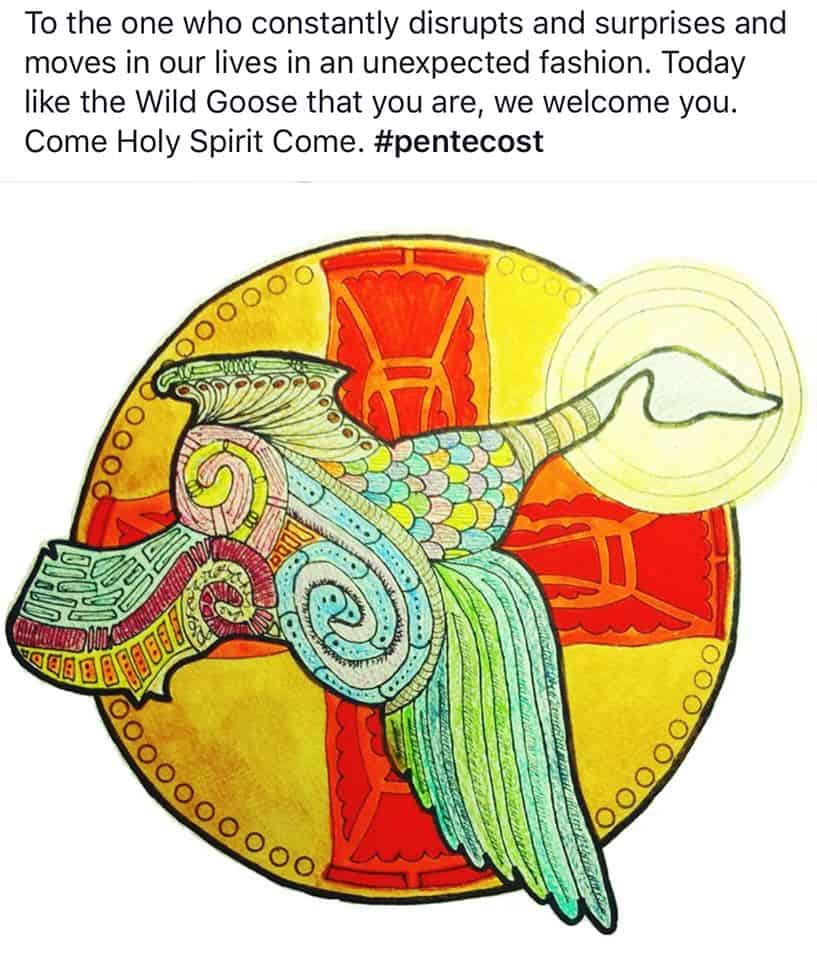
Say what?

These seemingly-out-of-nowhere new unscriptural teachings have been been increasing since around 2001. Let’s take a look at this one.
The “Wild Goose” is a blending of Druidism with Christianity that is Celtic Christianity. It (the Goose) is a pagan version of the Holy Spirit that is becoming increasingly popular in many of the more “forward thinking” organized churches. The pastors of these churches are enamored with Christian “mystics” and are drawn to asceticism and contemplation, as in unscriptural contemplative prayer/visualisation:
“Contemplative Prayer—A mystical prayer practice that leads one into the “silence” but in actuality leads away from God.
Definition of Contemplative Prayer: As it is expressed in a modern day movement is mystically (i.e. based on a technique or method) in which one empties the mind of thought through repetition, usually of a word or phrase or focus on the breath. In this case the silence would be an absence of thought, all thought.
The purpose of contemplative prayer is to enter an altered state of consciousness in order to find one’s true self, thus finding God. This true self relates to the belief that man is basically good. Proponents of contemplative prayer teach that all human beings have a divine center and that all, not just born again believers, should practice contemplative prayer.”i“
Celtic Christianity is an example of Gaia worship (nature worship that’s rooted in gnosticism) mixed with Christianity. It is much more subtle than the New Age Christianity of say, Hillsong.
At the baptism of Jesus, the Holy Spirit descending like a dove:
“In those days Jesus came from Nazareth of Galilee and was baptized by John in the Jordan. And when he came up out of the water, immediately he saw the heavens being torn open and the Spirit descending on him like a dove. And a voice came from heaven, You are my beloved Son; with you I am well pleased.”” Mark 1:9-11
(also Matt 3:13-17; Luke 3:21-22; John 1:32-34)
One the website Wildgoosechase.org, the author says that the “dove” spoke to the Roman culture, but,
“I’m in favor of using the Wild Goose as a symbol for the Holy Spirit as I believe OUR CULTURE IS IN NEED OF A NEW SYMBOL OF THE SPIRIT TO CATCH OUR IMAGINATIONS.
Really?.. The author is encouraging blatantly changing scripture. He also writes,
“…It is a wild MYSTERIOUS symbol that challenges us to go beyond our daily live.”
Mystery? Where’ve we heard that before…
“Unlike the dove, which is as calm and gentle, a wild goose will attack you and is in essence wild, untamed, and uncontrolled.”
THAT is not the Holy Spirit of the bible.
We learn a bit about Celtic Christianity in the article “Celtic Christianity draws pagans and Christians alike.” The author writes,
“Slowing down and taking in the ancient ways of Celtic Christians might be just what harried Americans crave in order to deepen their spiritual lives and find ancient grounding.
“It’s a big-tent spirituality, it’s something that not only Roman Catholics and mainline Protestants feel comfortable with, but it’s also something that is of interest to the neo-pagans of the world, many of the New Age types.” said Greg Brandenburgh, editor of Carl McColman’s “An Invitation to Celtic Wisdom: A Little Guide to Mystery, Spirit, and Compassion,” to be released in November by Hampton Roads Publishing.
Celtic Christianity and this “Wild Goose Holy Spirit” are further examples of mysticism infiltrating the organized church (“Churchianity”.) It has crept into every denomination from liturgical Presbyterian to experiential “Spirit-leading-rather-than-scriptural-accuracy” pentecostalism.
(BTW for a very balanced and informative view of Pentecostalism listen to Mikey Lynch’s sermon here.)



